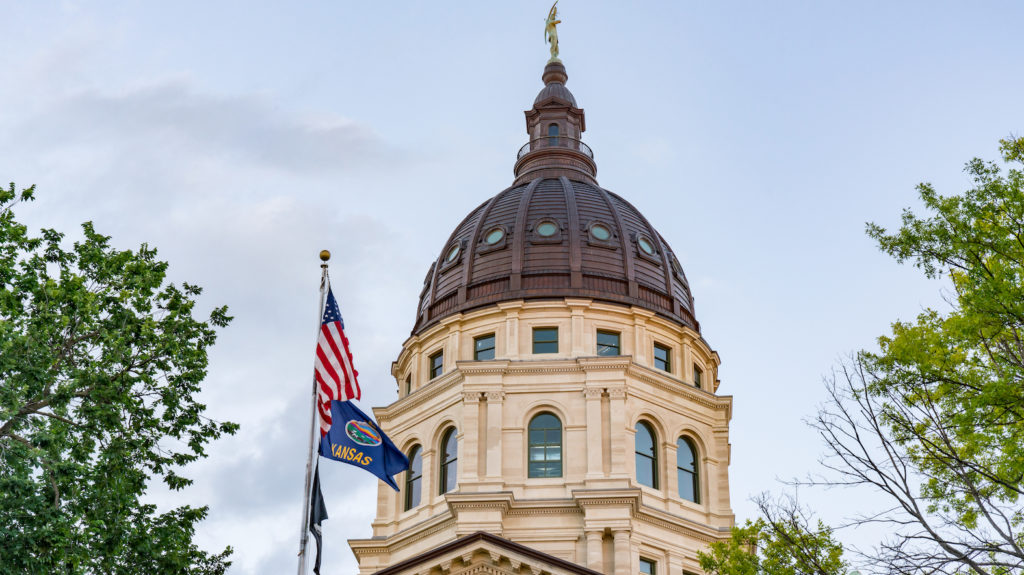Lawmakers in the Kansas Legislature voted April 26 to override Democratic Gov. Laura Kelly's veto of a "born-alive infants protection act."
The Kansas House voted to override the veto in a 87-37 vote, followed by the Kansas Senate in a 31-9 vote. The bill aims to protect infants born alive, regardless of whether the intent was to abort them, and marks the first abortion-related legislation enacted in the state since Kansas voters rejected an effort to strip abortion protections from their state constitution last year. It is scheduled to go into effect in July.
The bill, HB 2313, which would require physicians to provide infants born following a failed abortion procedure medical care appropriate to their gestational age, and to report data to the state about any such incidents. The new Kansas law also applies to instances where doctors induce labor to deliver an unborn child that is not expected to survive outside the womb.
Supporters of the legislation argue infants sometimes do survive failed late-term abortion procedures, pointing to cases like that of Dr. Kermit Gosnell, a Philadelphia abortionist convicted in 2013 of first-degree murder for cutting the spinal cords of multiple babies delivered alive in his abortion clinic, as well as the involuntary manslaughter of an adult patient, and performing abortions beyond Pennsylvania's limit of 24 weeks, among other charges.
However, opponents argue the law is not necessary as such instances rarely occur and would interfere with difficult medical decisions. They further argue it rejects the will of Kansas voters, who last year rejected a ballot measure that would have stripped existing protections for abortion from the state's constitution.
When Kelly vetoed the bill, she said in a statement, "This bill is misleading and unnecessary."
"Federal law already protects newborns, and the procedure being described in this bill does not exist in Kansas in the era of modern medicine," Kelly said in an April 14 statement. "The intent of this bill is to interfere in medical decisions that should remain between doctors and their patients."
Chuck Weber, executive director of the Kansas Catholic Conference, told OSV News April 27 that it's "almost unbelievable that we have to pass a law that says if a child is outside the womb then we have to protect that child."
Asked about arguments that the bill is against the will of Kansas voters after a loss at the ballot box for the pro-life cause last year, Weber replied that "this law does not in any way restrict abortion."
"If a botched abortion takes place and a child enters the world, that is not restricting abortion, that is taking care of a child that has entered the world," Weber said, arguing that the amendment rejected by Kansas voters differs from the born-alive bill.
In a statement, Carol Tobias, president of National Right to Life, said, "We thank the leaders in the Kansas House and Senate who are leading the way in protecting babies born alive following an abortion."
Tobias also praised "our affiliate Kansans for Life for their tireless and unceasing work in seeing this law passed."
Jeanne Gawdun, director of government relations for Kansans for Life, said in a statement, "We applaud the Kansas legislators from both sides of the aisle who stood together for compassion and basic human decency by repudiating Governor Kelly's heartless veto of the Born-Alive Infants Protection Act."
"Born-Alive protections proved to be the very definition of a 'middle-of-the-road' position, with 96% of Kansans in agreement that babies born alive after attempted abortions deserve the same degree of medical care as any newborn of the same gestational age," Gawdun said.
The Legislature also overrode the governor's vetoes of measures providing some funding for crisis pregnancy centers, as well as another requiring abortion providers to provide information to patients about what some call an abortion pill reversal. Proponents say administering a dose of progesterone can halt the effects of a medication abortion, but opponents say it is an unproven method.
Of all of the legislation approved by the Legislature over the governor's veto, Gawdun said that "for the first time in state history, a bipartisan group of legislators came together to override a Governor's veto of pro-life policies. Not only did they have the courage to stand against the Governor's extremist views on abortion and infanticide, but ensured women are provided with potentially life-saving information and compassionate abortion alternatives."

